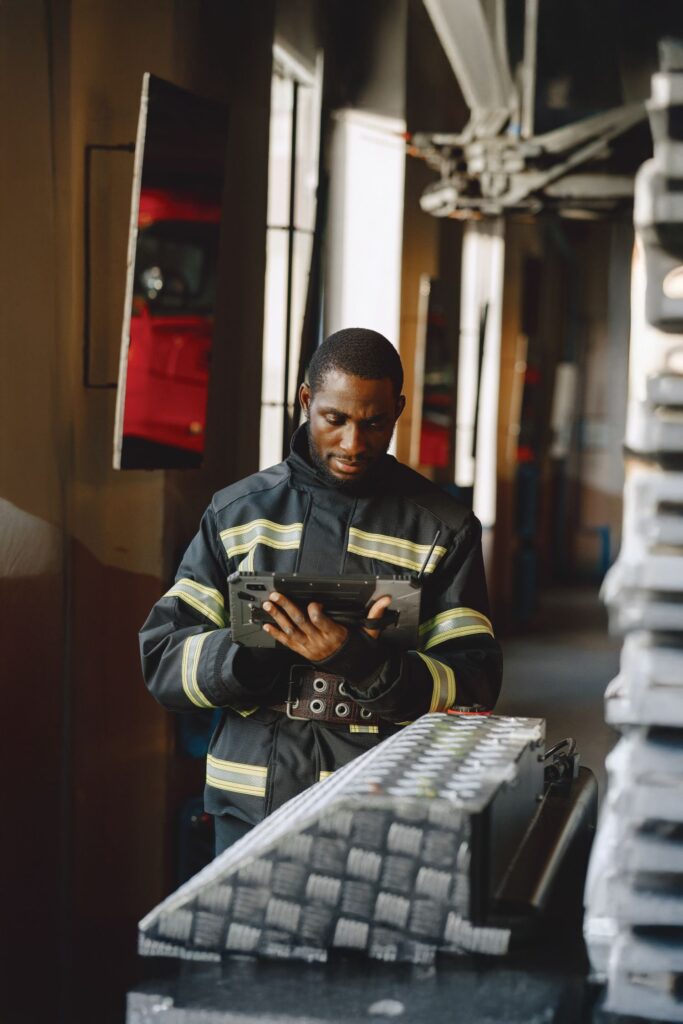Psychological Surveillance & Support
What is Psychological Surveillance?
Some roles carry additional vulnerability. They can interfere with an individual’s emotional and mental wellbeing due to the nature of the content faced as part of that person’s day-to-day activities.
Many individuals have an inbuilt ability to deal with a certain level of psychological stress, but this ability varies from person to person and changes over time or circumstance, largely depending on individual stress and resilience levels.
Psychological surveillance is a term used to describe a structured process that includes screening, risk management, and follow up support to help manage the impact of psychological harm, particularly for staff who carry out vulnerable roles and/or work in psychologically hazardous environments (eg. ‘blue light’ and emergency service, hospital and hospice, legal and criminal justice personnel).


When should you provide Psychological Support?
Being routinely exposed to ‘psychological hazards’ can result in ‘psychological injuries’.
There is a significant body of evidence to show that workers directly or indirectly exposed to traumatic events during their work have an increased risk of developing post-traumatic stress disorder, major depression, anxiety, alcohol or drug dependency.
Approaches organisations can take to reduce the risks:
- review and change (where necessary) working practices or procedures
- help staff to identify and manage their responses to hazards (eg providing training and/or education aimed at increasing resilience and coping skills)
- provide individual support to people who become ill, facilitating them to remain in, or return to work, and to learn lessons about causation
What is Lena’s Psychological Support Programme (PSP) and how can it help?
Lena’s PSP is a structured programme, initially developed in partnership with Lena and An Garda Síochána, targeted at teams/groups of employees who are routinely exposed to trauma or indirect trauma (such as having to view images/listen to accounts /read reports).
The programme is not counselling-based, rather therapists use psychoeducation to enable participants to become more self-aware of the impact of trauma/working in a psychologically hazardous environment, and how to foster self-care techniques.
It’s focused on the 3 S’s – Screening, Support, and Signposting and aims to:
- Reducing the negative physical and psychological impact, attributable to cumulative indirect exposure to traumatic events and/or disturbing and distressing material
- Raising awareness and educating personnel about possible negative stressor and trauma related reactions
- Nurturing help seeking behaviours and encouraging ownership for personal wellbeing
- Building resiliency and enhancing coping strategies
- Identifying and signposting those who may need psychological therapy or other interventions
- Enhancing personal and professional development
Primarily it is about teaching participants to recognise and understand their response(s) to psychological threats, to consider how they manage these currently, and to give them tools and techniques to improve their self-care and self-management going forward.


PSP programme outline.
- The organisation identifies the roles/teams for inclusion in the programme.
- Nominated participants are invited to an introductory induction session.
- Nominated participants then register online or by calling the Lena helpline.
- Nominated participants attend a structured 2-hour session every 3, or every 6 months (dependent on organisational preference/capacity).
- Two main areas are considered at each session ‘How is your work impacting on you personally and professionally?’ and ‘How might you support, or better support, yourself at work and outside of work?’
- Based on the answers, and what is covered within the session more broadly, the Lena therapist will help the participant to develop a Wellness Plan that they can work to over the coming months which focuses on building and maintaining their resilience.
Why choose Lena?
Lena has been delivering the PSP to An Garda Síochána from 2021, and there are now more than 1000 Garda personnel registered on the programme.
We have also worked with other customers to adapt and embed it within their working practices liaising closely with HR, Medical and Occupational Health Leads in each case.
If the PSP is something that you might be interested in, or if you would like us to partner with you to design and develop a bespoke psychological surveillance/support intervention, don’t hesitate to get in touch.
